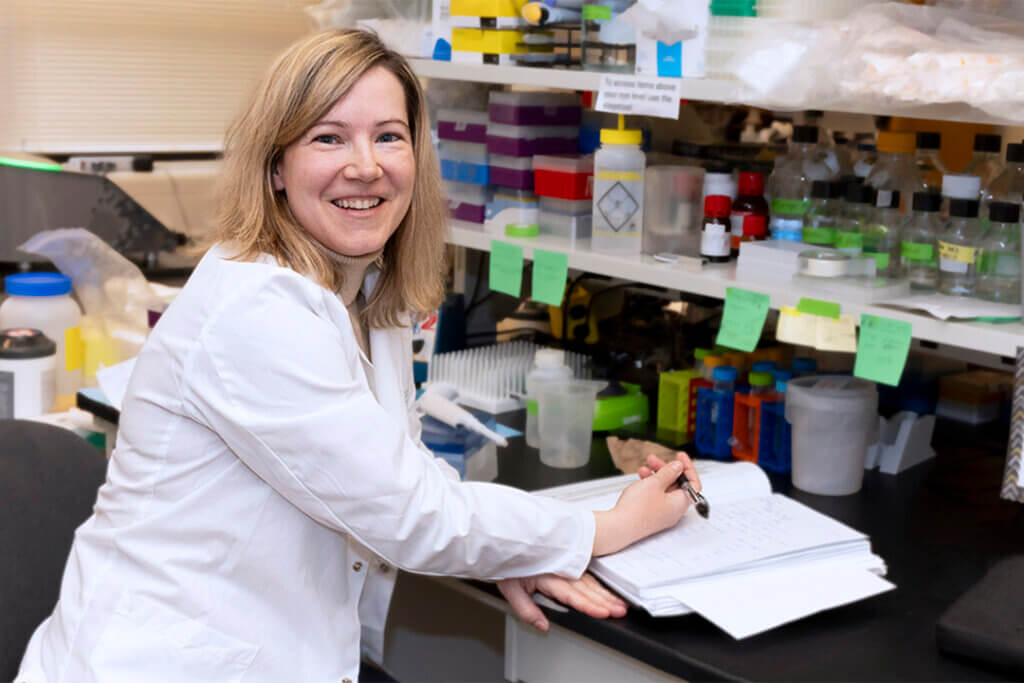
World Parkinson’s Day is an annual global healthcare event to recognize the cultural, economic, and social impact of Parkinson’s disease. This year, April 11 was designated as World Parkinson’s Day, which also focuses on advancing the acceptance, inclusion, and support of people affected by the disease. In recognition of the day, Purdue University spotlighted research by Dr. Jessica Fortin, assistant professor of basic medical sciences, physiology and pharmacology in the College of Veterinary Medicine’s Department of Basic Medical Sciences.
Parkinson’s disease is one of the world’s most common neurological diseases. The Parkinson’s Foundation reports that nearly one million Americans and more than 10 million people worldwide live with Parkinson’s. Symptoms include uncontrollable or unintended movement and difficulty talking and walking.

The aggregation of proteins, including certain hormones, is a common trait in the development of both Parkinson’s and Alzheimer’s. Dr. Fortin is doing patent-pending work to inhibit protein aggregation in the brain. A member of the Purdue Institute for Drug Discovery, Dr. Fortin leads a team preparing new small-molecule compounds and their validation through in vitro studies to inhibit the aggregation of several proteins.
“We aim to offer small-molecule therapeutics that not only prevent aggregation, but also disaggregate already-existing clumps,” Dr. Fortin said. “The body can then eliminate these byproducts and the dual action of these compounds can impede the redistribution of the clumps alongside blood vessels; the risk of such redistribution is intracranial hemorrhage in the brain.”
Dr. Fortin and her colleagues have synthesized a library of small-molecule compounds with anti-inclusion and anti-seeding activities. These activities were investigated in collaboration with Ulf Dettmer of Harvard Medical School and Cristian Lasagna-Reeves of the Indiana University School of Medicine, respectively.
Dr. Fortin disclosed the compounds to the Purdue Innovates Office of Technology Commercialization, which has applied for patents through the U.S. Patent and Trademark Office to protect the intellectual property. Industry partners interested in developing or commercializing the work should contact Joe Kasper, assistant director of business development and licensing — life sciences, at jrkasper@prf.org, about track codes 69967, 69996, 70004 and 70255.
In conjunction with World Parkinson’s Day, Dr. Fortin and her team are to be congratulated on their work to provide potential small molecule therapeutics for Parkinson’s disease. To learn more about innovation at Purdue, visit the Purdue Innovates website.
